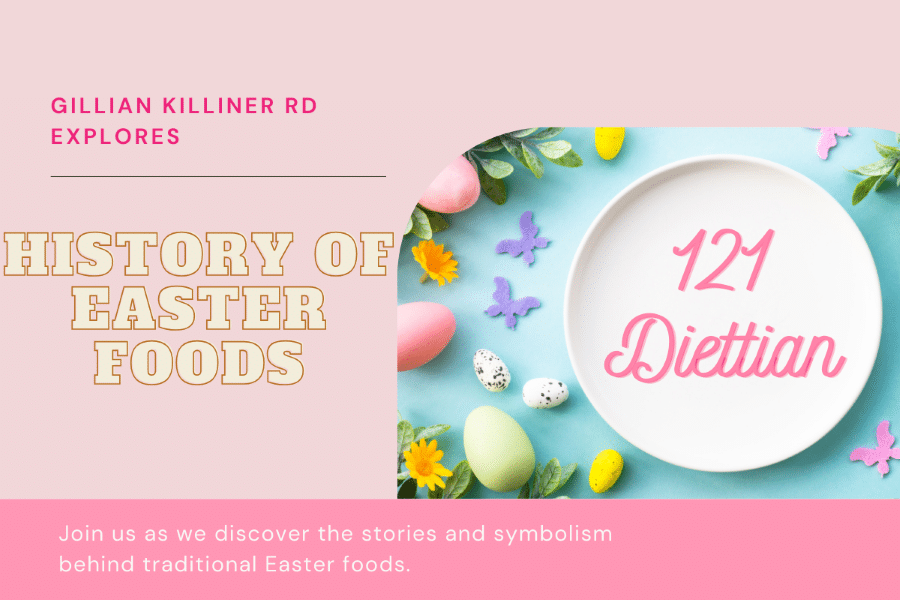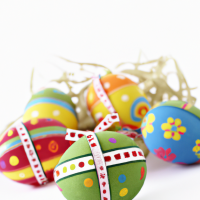Traditional Foods for Easter and Their Meanings

Easter, a joyous holiday celebrated by many around the world, is not just about colourful eggs and chocolate bunnies. It’s also a time when families gather to enjoy delicious traditional foods, each carrying deep symbolic meanings.
As a dietitian, I was interested in exploring the significance behind these Easter delicacies and why they hold a special place in hearts and on our tables during the holiday season.
Easter is a significant holiday in many cultures, marked by various traditions and rituals.
Among these traditions, food plays a central role, representing themes of renewal, rebirth, and the triumph of life over death, or for many not religious, a chocolate binge.
History of Easter Foods
Easter culinary traditions have ancient roots, dating back to pagan celebrations of springtime fertility and renewal. Over time, these traditions merged with Christian beliefs, resulting in a rich blend of symbolic foods.
Symbolism Behind Easter Foods
Each Easter food carries its own symbolic meaning, often rooted in religious or cultural significance. I have found it really interesting researching and understanding these symbols and I suppose it adds depth to the experience of Easter. The following are a snapshot of various Easter foods and their meanings….
Hot Cross Buns
Hot cross buns, a very popular sweet bun with their cross topping, symbolizes the crucifixion of Jesus Christ, and interestingly the spices represent the embalming spices used at his burial.
Easter Eggs
Eggs, the most well know Easter food is a symbol of new life and rebirth, and represents the resurrection of Jesus Christ. The tradition of decorating eggs dates back to ancient civilizations and has been adapted by Christians as a symbol of the empty tomb.
Lamb
Lamb, often served as the centrepiece of Easter feasts, symbolises Jesus Christ as the “sacrificial Lamb of God, whose death redeemed humanity”.
Ham
Ham is a popular Easter dish in many households, symbolizing abundance and celebration. Its origins can be traced back to pagan spring festivals and later adopted into Christian Easter feasts.
Easter Bread
Easter bread, rich with symbolism and tradition, is baked in various shapes and flavours around the world. Its sweet aroma and decorative designs evoke feelings of joy and anticipation.
Conclusion
As we prepare to celebrate Easter, I am hoping this blog provides some info on the rich symbolism behind the traditional foods we enjoy. From hot cross buns to roasted lamb, these culinary delights not only nourish our bodies but also feed our spirits, reminding us of the hope and renewal that Easter represents.
And finally, it would be remiss of me not to mention in addition to the importance of enjoying your holidays, and family, but also to go easy on the processed eggs and chocolates!!!

If you want to book your programme TODAY we would love to help you.
You can book a 121 Dietitian Programme today by clicking on the link below
Links included in this description might be Amazon affiliate links. If you purchase a product or service with the links that I provide I may receive a small commission.
